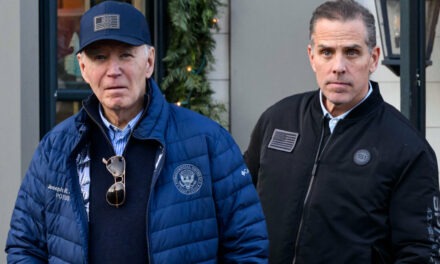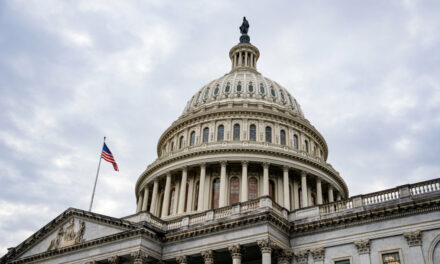We support our Publishers and Content Creators. You can view this story on their website by CLICKING HERE.
Her office submitted a letter to Trump’s attorneys, indicating they will keep pursuing the civil case.
The office of New York Attorney General Letitia James indicated she will not drop her civil fraud case against President-elect Donald Trump, his sons, and his company that led to a more than $450 million judgment earlier this year.
Earlier this year, New York Judge Arthur Engoron ordered Trump to pay $454 million in a civil fraud judgment in James’s lawsuit against Trump and his company, the Trump Organization, earlier arguing in his ruling that he believes Trump defrauded banks, insurers, and investors by allegedly inflating his net worth and the valuation of his properties.
“Your letter presents no basis for this Office to seek to vacate the final judgment or to dismiss this action,” she wrote to his attorney in the letter, which was uploaded online on Tuesday.
Vale also argued that the “ordinary burdens of civil litigation do not impede the President’s official duties in a way that violates the U.S. Constitution” and that the case brought by the attorney general’s office is civil, not criminal.
“The final judgment concerns only business conduct undertaken by entities that are part of the Trump Organization and individual defendants who were acting on behalf of the Trump Organization,” Vale said. “The judgment thus does not concern any conduct related to Mr. Trump’s first term as President.”
It also does not “implicate any conduct that Mr. Trump might undertake after his upcoming inauguration,” the letter stated, adding that presidents don’t have “immunity from civil lawsuits arising from unofficial conduct.”
“Based on the ruling in this case, no company will want to come to New York to do business, and many businesses are fleeing,” his attorneys wrote. “The economic aspects of this decision are a disaster for New York.”
The New York Attorney General’s office “has used the statute in a way never seen before,” they added.
In September, a panel of the New York Appellate Division court hearing Trump’s appeal appeared to express skepticism of Engoron’s ruling and James’s case during oral arguments.
“Every case that you cite involves damage to consumers, damage to the marketplace,” Appeals Court Judge David Friedman told Vale on Sept. 26.
“We don’t have anything like that here,” he said, referring to the case against Trump, adding that nobody “lost any money.”
The judges also questioned what constraints applied to the law James cited in bringing the case, noting that it is typically used to go after fraudsters who target vulnerable consumers.
“How do we draw a line or at least put up guardrails? Justice Peter Moulton asked at one point.
However, Vale countered by saying that the case is warranted because “when risk is injected into the market, that does hurt the counterparties and it does hurt the market as a whole.” She said the statute being applied in the civil case, called Executive Law 63(12), is broadly aimed at stopping fraud and illegality and is therefore appropriate in Trump’s case.
So far, neither Trump nor his team have responded to Vale’s letter. The Epoch Times contacted his transition team for comment on Tuesday but received no reply by publication time.
Reuters contributed to this report.

 Conservative
Conservative  Search
Search Trending
Trending Current News
Current News 







